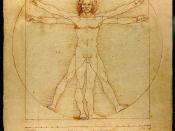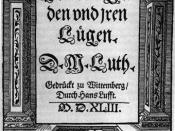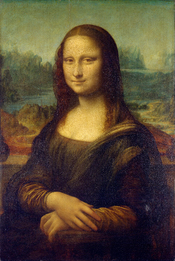Unlike many other astonishing time periods, the Renaissance had no date that signified the beginning or end. Many scholars today still debate whether the Renaissance was a unique age or just a continuation of the Middle Ages. The term Renaissance, which means "rebirth" in French, is given to the period after the Middle Ages, because of its explosiveness of new advances between the 14th and 16th centuries. Most importantly, the Renaissance made people think about themselves, other people, and the world that surrounds them. The Renaissance, a period of literary, artistic, mathematic, and scientific advances, can be referred to as a unique age rather than a continuation of the Middle Ages.
Humanism and individualism played a key role in allowing the Renaissance to be considered a new era or revolution. Humanism greatly influenced European culture during the Renaissance and is shown in many works of art. Once humanists began to think differently than during the Middle Ages, things began to change tremendously.
Humanists began to study old classical Greek and Roman manuscripts, which led to questioning spirit of what occurred during the Middle Ages. Numerous humanists became convinced that a person should live a joyful and meaningful life. Humanists began to focus on life in the present, which was in contrast to the Middle Ages' focus on the after life. They thought that the mortal-men should first care for mortal things, and life on earth, before they began to prepare for life after death (Doc 4).
Individualism also played a key part in the Renaissance and helping it be considered a new era, not a continuation of the Middle Ages. This term can be referred to as the idea of people thinking about themselves, others, and the world around them. Before the Renaissance, many people found themselves as only...


